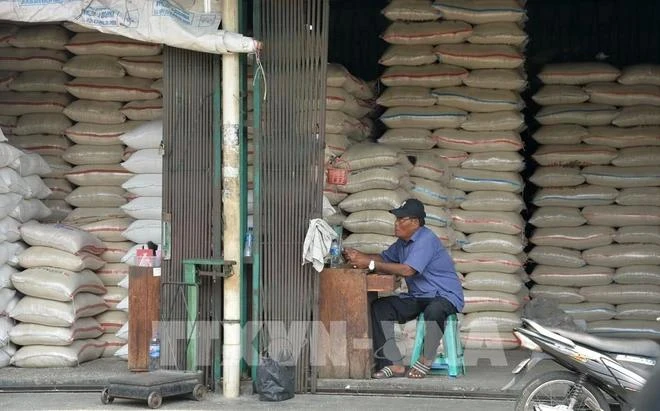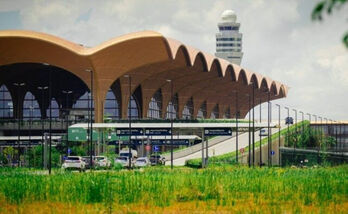
A rice shop in Jakarta, Indonesia (Photo: AFP/VNA)
With a projected population increase of 50 million people over the next 20 years, Indonesia's food supply is likely to face serious shortages. This is partly due to a decline in soil quality and the number of farmers, leading to reduced yields and rising food prices.
According to data from the Indonesian National Logistics Agency (Bulog), the risk of a food crisis in the country is increasingly felt, especially with the decline in food production. The country's rice production from January to April 2024 decreased by 17.74% compared to the same period last year from 22.55 million tonnes to 18.55 million tonnes.
Indonesia's rice import plan for this year has been adjusted from the initial 2 million tonnes to 3.6 million tonnes, making it the second largest rice importer in the world after the Philippines, and becoming dependent on imported rice.
Despite its efforts in improving the situation, it seems that the Southeast Asian nation is still confused about the direction.
To reduce its dependence on food imports, Indonesia plans to invest in a producer instead of constantly importing rice from neighbouring countries to ensure sufficient rice reserves. Indonesia has also encouraged people to change their habit of consuming a lot of rice and replace it with other types of food available domestically.
However, experts held that in order to deal with the food security problem, the 280-million-strong country must promote domestic production.
They asserted that biotech seeds, produced through genetic engineering method, are a hope and answer to Indonesia's food problems, including food crisis. In the 1996-2018 period, biotechnology helped increase the value of agricultural production by up to 225 billion USD.
According to Indonesian biotechnology experts, adopting biotech seeds also allows farmers to reduce potential yield losses by up to 10%./.
VNA
Source: https://en.vietnamplus.vn/indonesia-seeks-solutions-to-food-crisis-post291167.vnp
 Cambodia officially inaugurates Techo International Airport
Cambodia officially inaugurates Techo International Airport



